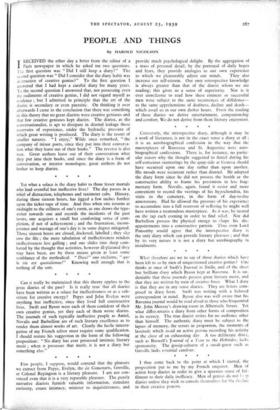Conversely, the introspective diary, although it may be a work
of literature, is not in the exact sense a diary at all ; it is an autobiographical confession in the way that the masterpieces of Rousseau and St. Augustine were auto- biographical confessions. There is, for instance, no partic- ular reason why the thought suggested to Amid during his self-conscious saunterings by the quay-side at Geneva should have occurred upon one day rather than upon another. His moods were recurrent rather than diurnal. He adopted the diary form since he did not possess the health or the constructive ability to frame his pessimism in less frag- mentary form. Novalis, again, found it easier and more convenient to record the veerings of his hypochondria, his visits to the cemetery, in the form of day-to-day annotations. Had he allowed the pressure of his experience to accumulate into a full reservoir of suffering he might well have written a tremendous masterpiece. As it was, he turned on the tap each evening in order to find relief. Nor did Barbellion possess the physical energy to shape his dis- appointments into a constructive pattern. Thus even Lord Ponsonby would agree that the introspective diary is the only diary which can provide literary pleasure ; and that by its very nature it is not a diary but autobiography in instalments.
* * * *








































 Previous page
Previous page